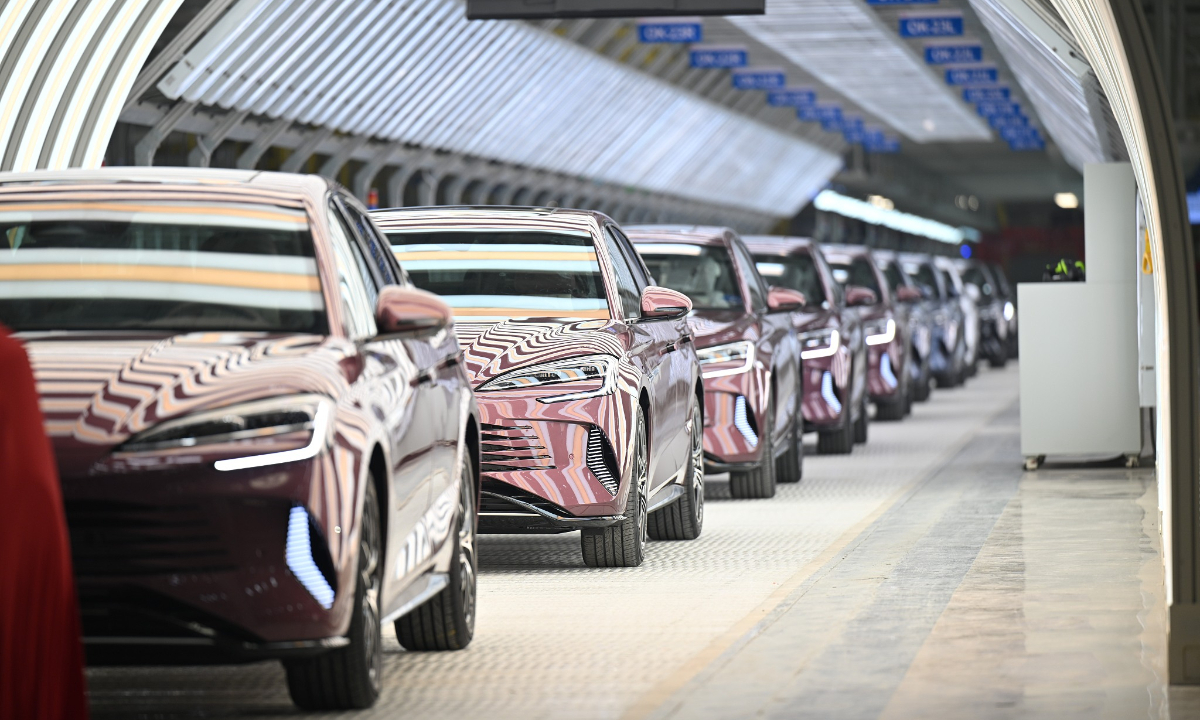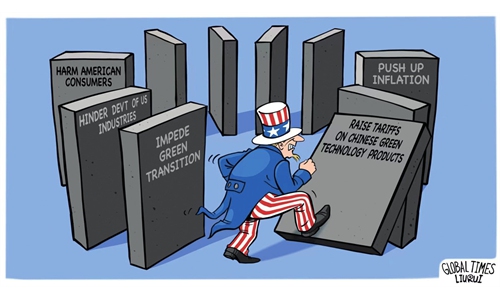Reported Japan-ASEAN ‘EV partnership’ unlikely to impact Chinese investment and sales in the region: experts

EV Photo:VCG
Japan's reported plan to cooperate with the Association of Southeast Asian Nations (ASEAN) to develop a strategy for auto production in the region, purportedly aimed at "countering China's electric vehicles (EV)," is unlikely to affect Chinese EV exports to the region, Chinese industry experts said.The remarks came as Nikkei Asia reported on Monday that Japan and ASEAN are planning to create their first joint strategy on auto production and sales in Southeast Asia, as Chinese EVs become increasingly popular there.
The two sides aim to draw up an interim joint strategy through 2035 when their economic ministers meet as early as September, according to the report. The strategy is reportedly to include cooperation in various sectors including personnel training and de-carbonization in production.
The Nikkei Asia report did not clarify how the strategy could "counter" Chinese EVs, nor identify the source of its report.
Chinese experts said that although the authenticity of the reported strategy remains unknown, there is a possibility that Japan may aim for enhanced collaboration with ASEAN nations in the automobile sector, potentially including the EV segment, to broaden their presence in the thriving market.
Japan has identified new-energy vehicles as one of its keys for future industry development and aims to build up its competitiveness in the ASEAN market, which has a significant potential for green development, Qian Feng, director of the research department at the National Strategy Institute at Tsinghua University, told the Global Times on Monday.
However, since there is no concrete evidence proving the reported partnership between Japan and ASEAN, the possible effect remains to be seen, Qian said.
"Whatever the circumstances, it is believed that ASEAN countries will avoid taking sides, and instead, strive to maintain a relatively balanced position in a tactful manner," Qian said.
The sales of Japanese cars have been taking a dominant position in Southeast Asian region, but the situation has now changed as green transformation is gaining pace in the region.
In a separated report by Nikkei Asia in February, Thailand's total sales of passenger cars and commercial vehicles in 2023 reached 775,780 units, with Chinese car companies' share reaching 11 percent, increasing to 2.2 times that of the previous year, while the market share of Japanese cars dropped by 8 percentage points to 78 percent.
While one cannot rule out that Japan, in collaboration with ASEAN, could seek to strengthen its foothold in EV sector, the likelihood of using this initiative to constrain the development of Chinese EVs in the region is minimal, given the significant market position of Chinese EV companies there, with extensive investment and industrial cooperation already in place, Cui Dongshu, secretary-general of the China Passenger Car Association, told the Global Times on Monday.
"It is highly unlikely that ASEAN would impose restrictions on Chinese EVs," Cui said.
Global Times

